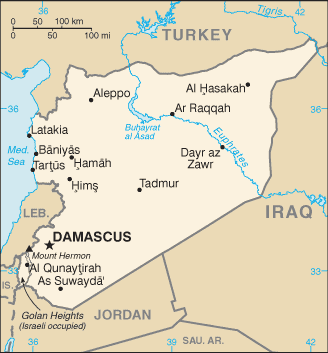What a difference a week makes.
Last weekend, Russia called an emergency meeting of the UN Security Council over a US airstrike in Syria which killed 83 soldiers. US officials were apoplectic, spending the entirety of the brief meeting railing against Russia for daring to call a meeting at all.
 This weekend, however, it was America’s turn to call its own emergency meeting on Syria, with an eye toward blaming Russia for everything that’s gone wrong over the last few days. US Envoy Samantha Power’s claims last week that such meetings are just “a diversion from what is happening on the ground” appear long forgotten.
This weekend, however, it was America’s turn to call its own emergency meeting on Syria, with an eye toward blaming Russia for everything that’s gone wrong over the last few days. US Envoy Samantha Power’s claims last week that such meetings are just “a diversion from what is happening on the ground” appear long forgotten.
Instead, Power spent this meeting furiously railing at “Russian barbarism,” insisting that Russia’s operations against the Nusra Front cannot be considered “counter-terrorism” and reiterating US insistence that Russia was to blame for last week’s destruction of a humanitarian convoy, which US officials insisted would be the case even if Russia didn’t actually do it.
Power went on to insist that Russia is “abusing” its position as a permanent member of the UN Security Council in carrying out airstrikes in Syria that have killed civilians. Power and her British counterpart, both representing permanent members of the UN Security Council who have also killed civilians in Syria airstrikes, insisted that the war was at this point Russia’s fault.
Russian Ambassador Vitaly Churkin warned he believes that the peace process in Syria is “almost an impossible task now,” while Syria’s Bashar Ja’afari, who spoke after Western officials all stormed out, insisted that the political solution to the Syrian Civil War required fighting terrorist groups like Nusra, which is was a long-time affiliate of al-Qaeda, and retains close, if informal, ties to the organization.
This appeared to be the joint US-Russia plan just a couple of weeks ago, with both agreeing to a weeklong ceasefire leading to joint attacks on Nusra. The bungling US attack on Syrian troops, however, sparked tensions, and the Obama Administration was so incensed by Russia’s criticism, the joint operations were abandoned before they began, instead demanding Russia and Syria unilaterally ground all warplanes in the country.
The US subsequently blamed Russia for not complying with their demands, while Russia insisted that the US and its allies had convinced the rebels of the necessity of a military solution, which meant many were never fully on board with the ceasefire, and were eager to scrap it.


